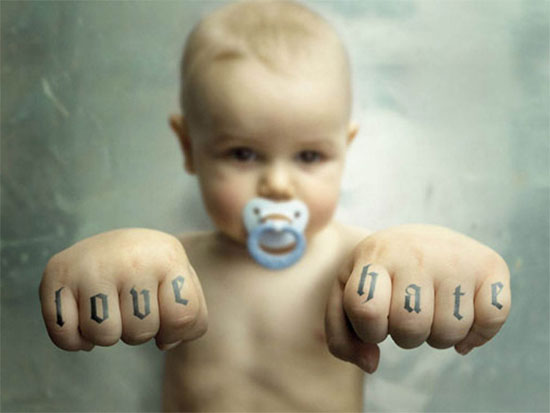Theory predetermined by name
According to some experts, human names can shape the character, life and career path of the future.
Sometimes we try to live up to the name. Someone tried to stay away from it. No matter what aspect, the name is considered to play a key role in the process of self-development, thereby motivating people to follow the paths of life and career.
According to The Week magazine, the term "fate theory" appeared in the 1994 issue of New Scientist to explain this phenomenon. The editors of the magazine note that the case of two scientists who publish their research topics is strangely similar to their surname. In the first case, the editorial board received the book entitled Extreme Locations - The polar regions and the future of the planet , author Daniel Snowman (here Snowman is a snowman). A few weeks later, they received a draft of London under London - Under London - The underground guide , one of the authors is Richard Trench (Trench means ditch or digging). Maybe it's just a coincidence, or maybe the names of the scientists have influenced their career direction.

Name has a certain influence on children's future - (Photo: Wallibs)
The study of name influence may have lasted at least half a century. In 1996, an article titled Name and Behavior of H.Edward Deluzain, with a story recounting a famous study in 1954, was published in the British Journal of Psychology . Accordingly, a community named Ashanti in Africa thinks that the birthday of the week is related to a person's personality. For example, a son born on the second day of the week is usually gentle, loves peace; If they were born on Wednesday, they would be aggressive and prefer violence. Due to this belief, parents have a habit of adding birthdays to the name of a newly born child. In retrospect, experts discovered the number of delinquency cases and violent behaviors were particularly high for people born on Wednesday in this community.
Although it is not always based on this pattern to predict future human behavior, the name still creates the basis for the opposite person to make an initial conclusion about that person. That's why many parents have been brainwashing for a few months in the hope of choosing the most appropriate name for their unborn child. In some cases, parents put strong, masculine names for boys and gentle, feminine for girls. Most parents are even more cautious when trying to name an island, rhyming to see if the name is the same as the syllable or what could make the child teased at school.
Psychologist David Figlio of Northwestern University in Illinois has shown that a young name can leave a mark that will not fade in their lives, better or worse. Accordingly, boys are often named for girls are more likely to behave abnormally than boys with masculine names. Self-esteem can also impact in this case. People who hate their names, and think others think the name is embarrassing, may have behavioral problems in their lives, according to Professor San Francisco's Jean Twenge. This shows that people always draw the subconscious impression of others, and the name is one of the first assessed goals.
- What is chaos theory?
- Why does the new cosmic theory make Stephen Hawking angry?
- Harmless thought, but some conspiracy theories can be deadly
- February 12: Charles Darwin - Theory of evolution and natural selection
- Stephen Hawking has just signed a letter to protect the doctrine of the origin of the universe
- The secret of the connection between Albert Einstein's theory and the devil
- The new hypothesis is controversial about gravity
- Controversy 'unique' about Evolutionary theory
- Proved Einstein's theory of relativity at the galactic level
- Video explains the theory of special relativity in a fun style
- Tips to control other people's thoughts were born 350 years ago
- Big Bang theory may be wrong
 'Fine laughs' - Scary and painful torture in ancient times
'Fine laughs' - Scary and painful torture in ancient times The sequence of numbers 142857 of the Egyptian pyramids is known as the strangest number in the world - Why?
The sequence of numbers 142857 of the Egyptian pyramids is known as the strangest number in the world - Why? History of the iron
History of the iron What is alum?
What is alum?